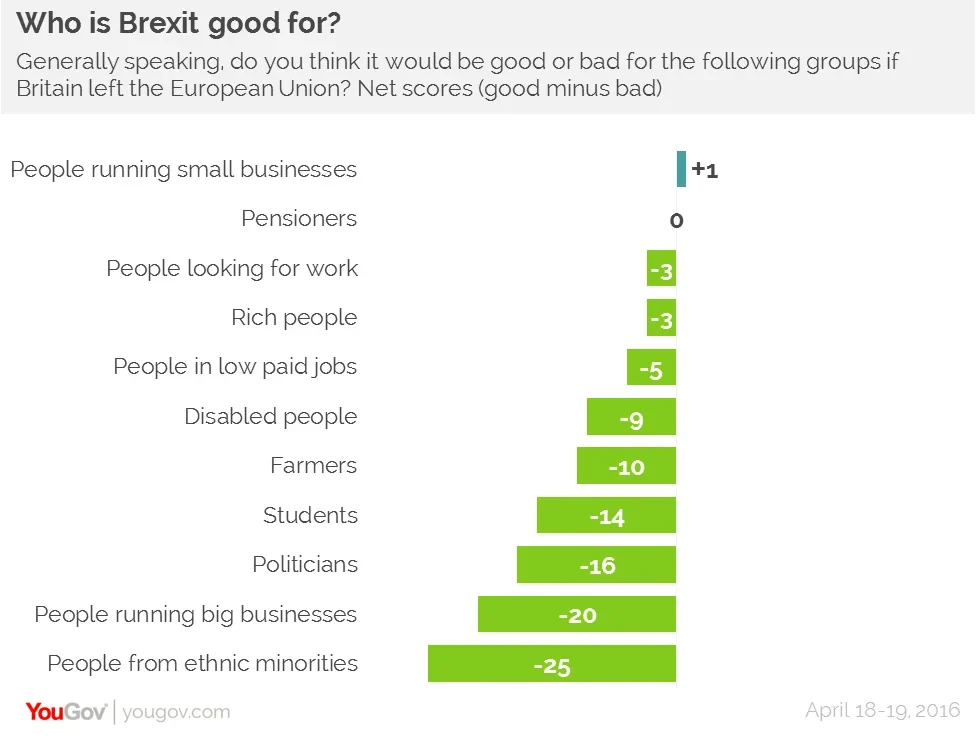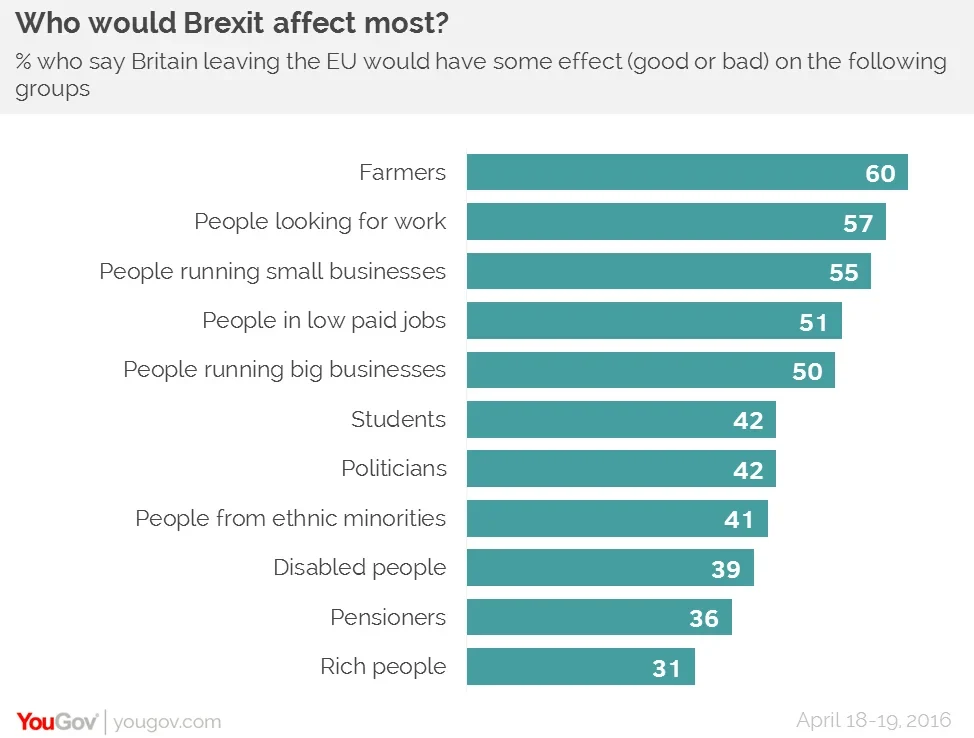Most groups are expected not to benefit from Brexit – but small business owners, the unemployed and those on low wages are among the groups expected to be harmed least
Class divides the EU referendum battle lines in awkward and unconventional ways. While in general Labour voters tend to be more europhile, working class people are also generally more eurosceptic, and may be motivated by a key Brexit argument. Research by UCL has found that immigration from the EU may put upward pressure on the wages for those at the top end of the income distribution while depressing wages for those at the bottom end.
New YouGov research reveals that while in most cases people are more likely to say certain groups will be negatively rather than positively affected by Britain leaving the EU, working class groups are among those British people say would be least negatively affected.
The only group seen as getting a net benefit out of Brexit are people running small businesses (+1). And with the unemployed and low-paid the net negative score is small (-3 and -5 respectively).

Rich people also have a small net negative, but that is because they have the highest score for not being affected at all by Brexit. Farmers on the other hand are the group seen as being the most affected (for better or worse) by leaving the EU, as are the unemployed, small business owners and the low-paid.

In our most recently published EU referendum voting intention, working class people wanted Britain to leave the EU by 47% to 26% while middle class people wanted to remain by 48% to 34%. Even during our highest ever recorded lead for Remain – a lead of 12 points in May 2015 – working class people wanted Britain to leave the EU by 42% to 36% while middle class people wanted to remain by 53% to 27%.
PA image









